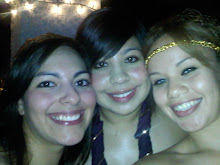


“First they came for the communists, and I did not speak out—because I was not a communist;
Then they came for the trade unionists, and I did not speak out—because I was not a trade unionist;
Then they came for the Jews, and I did not speak out—because I was not a Jew;
Then they came for me—and there was no one left to speak out for me.”
–Pastor Martin Niemöller
It is easy to not act for the sake of another’s well being. We see the actions performed as never possibly affecting us unless we interfere and make it a problem for ourselves. We create several different excuses for why the hideous actions being done are allowed. In the article, Spilling the Blood of Bulls to Preserve Zulu Tradition, the “[…] killing the bull was an important Zulu tradition […]” and therefore “[…] culture is used as an excuse for outrages […]” (710). Several times we have been witness to some event that should be prevented but something inside of all of us allows for it to continue and for us to validate its occurrence. In J. Frank Dobie’s, The Longhorn, he describes how easy it is to help when Kerr finds a bull calf next to a dead cow. “Kerr pitched his rope over its head, drew it up across the saddle in front of him, carried it home, and turned it over to Maria” (259). These simplest acts led to the survival of an animal whom came to be a beloved member of the family. In Hemingway’s, Death in the Afternoon, however, the “[…] stupid brutal business […]” (701) that constitutes bullfighting is overlooked because of the picturesque actions that are seen as tragic and comedic performance. What seems to be overlooked is that these actions end the life of one animal and overlook injuries imposed on another animal for the entertainment of human beings. Whether these people are morally and ethically correct is not of any importance as they are entranced by the surreal experience they encounter upon watching a bullfight. The indifference that Hemingway displays towards the death of the horse is mind boggling to say the least but his experiences during war times and in trying to write about pure death is the reasoning behind his unusual reaction. The disciplined and ritualistic presentation of bullfighting makes the actions performed seem part of a greater whole and not as separate events. The performance is compared to that of symphony with a bad double bass player being listened to by a music aficionado. “He does not think of the double bass as separated from the whole of the orchestra or as being played by a human being” (707). Though, the series of actions are individually horrible, the whole production would be harmed by the loss of that aspect. The thought of the events as a whole gives validity to the argument being made to continue inflicting harm on the horse and bull for future shows. Dobie’s, The Mustang, discusses the decay of the wild horse population. No one around them seems to help as most humans only hope to capture a mustang for all the beauty they embody. The mustang’s don’t think of survival for themselves either, they focus on freedom. “He relied upon motion, not covert, for the maintenance of liberty” (315). The mustangs’ continuous movements throughout the planes allowed for some to remain free. They acted to remain free but the actions were not enough ot save them since others chose to not help and act for them as well. I personally feel that the more you try to avoid involving yourself in an event that is affecting a particular group, the more vulnerable you become to also being affected by that event because you are blinded to any of the warning signs that might help you prevent the events from reoccurring.The survival of every single being on earth depends on our acknowledgment that our action is required even when an event doesn’t personally affect us.

No comments:
Post a Comment